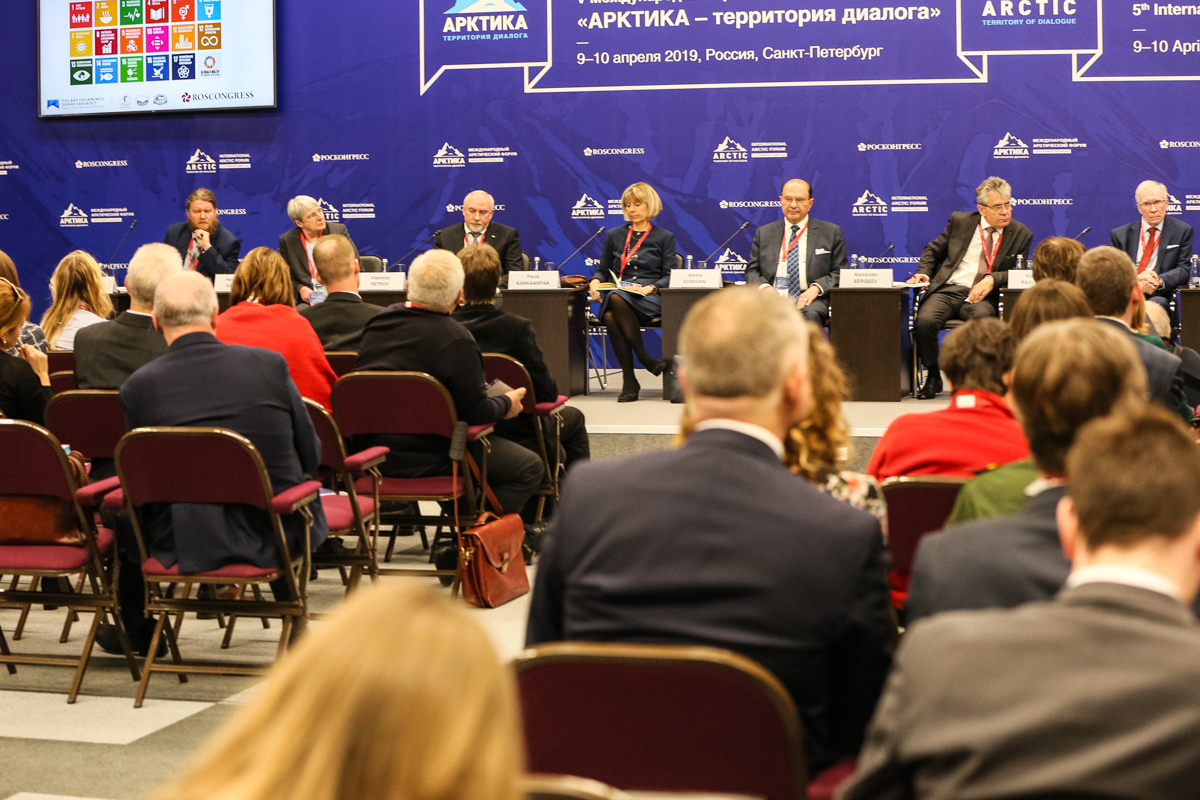Scientists from St Petersburg University and the Kola Science Centre of the Russian Academy of Sciences have synthesised mineral-like materials for radioactive waste disposal

Scientists from St Petersburg University and the Kola Science Centre of the Russian Academy of Sciences have created artificial sorbents for the safe handling of radioactive waste in the Arctic. Sergey Krivovichev, Head of the Department of Crystallography, St Petersburg University, and Head of the Kola Science Centre of the Russian Academy of Sciences, spoke about this project. He also took part in the round table "Arctic Researchers’ Dialogue" in the framework of the 5th International Arctic Forum.
In the early 2000s, a research group, consisting of employees of St Petersburg University and the Kola Science Centre of the Russian Academy of Sciences (the only federal research centre in Russia located above the Arctic Circle), discovered several new titanosilicate minerals in the Khibiny Mountains. A study of their crystal structures, conducted at the St Petersburg University Research Park, showed that these minerals have a porous structure and can be used as molecular sieves. This structure makes it possible for metal ions and water molecules to freely “flow in and out” through pores. The scientists succeeded in artificially synthesising materials with a similar structure under laboratory conditions. These substances, which can confidently be called nature-like materials, have passed tests and successfully proved to be means for cleaning liquid radioactive waste from the most hazardous radionuclides - Caesium-137 and Strontium-90. At present, the scientists are negotiating with major Russian companies to apply the development on an industrial scale. Production facilities are planned to be placed directly in the Arctic - in one of the buildings of the Kola Science Centre of the Russian Academy of Sciences in Apatity.
The sorbent agents that we have managed to create can be applied in the Arctic region, including the Murmansk Region, where the largest Russian nuclear submarine garrison is located. When unloading submarine reactors, there are wastes that our nature-like materials successfully handle.
Sergey Krivovichev, Professor of St Petersburg University
As the head of the Kola Science Centre of the Russian Academy of Sciences, Sergey Krivovichev spoke about other studies that will make it possible to preserve the Arctic environment. He also described the international project of Kolarctic Cross-Border Cooperation (Finland, Sweden, Norway, the Murmansk Region). The Kolarctic Programme 2014–2020 is aimed at the economic and social development of the Arctic region, increasing its attractiveness, as well as the rational use of natural resources.

